The Best Dog Breeds For Canicross
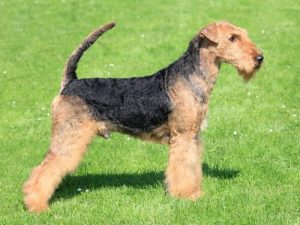
This sport is becoming more popular all over the world, mainly because it’s a great way for owners to train and spend time with their dogs. In this article, you can find out which dog breeds are best suited for Canicross to get your dog to start training as soon as possible!
Which breeds are best for Canicross?
As far as the rules are concerned, any breed can take part in Canicross, as long as they’re in a good physical condition and current on veterinary controls. They also require for the dogs to be microchipped and be between the ages of 1 and 10.
Apart from this, the truth is that there are certain breeds which are more appropriate for this kind of activity. This sport can be quite demanding for them (and for owners!). Here are some of the best breeds:
1. Airedale Terrier
This breed is originally from the UK, like most terrier breeds, and are considered to be one of the strongest dog breeds due to their musculature. They’re also considered to be tough and active, which makes them perfect to go running next to, or for participating in Canicross.
The Airedale Terrier (in the picture above) is an intelligent, obedient, and docile dog. They respond very well to basic training and simple commands without having any problems. The only issue they have is cleaning their ears on a regular basis to avoid any infections, as well as daily brushing to prevent their hair from tangling.
2. Weimaraner
This is one of the most popular breeds for Canicross due to their stamina and being easy to train. It’s a very obedient, well-behaved breed that has lots of energy.
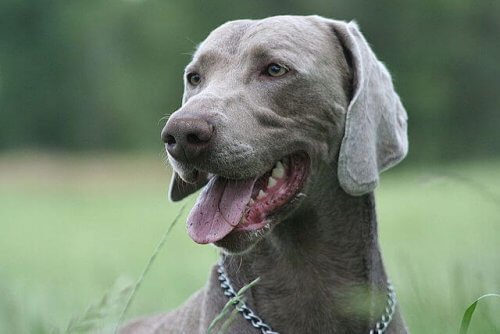
The Weimaraner also has short, thick hair that provides them with protection from moisture and can travel through marshy areas without difficulty. It has a muscular, well-proportioned body, with long, well-developed legs. They are also very sure-footed and have no problems jumping at any level.
3. Border Collie
This breed is originally from Scotland and is a shepherd breed that is an excellent choice for Canicross. This is because they are very intelligent and agile animals that are highly obedient. They’re considered to be one of the easiest dogs to train and they are great for dog sports.
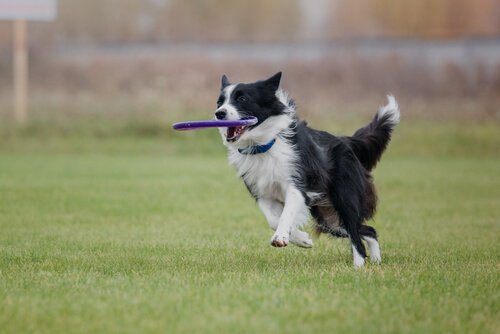
The Border Collie is strong, energetic, athletic, and very quick. They’re a medium-sized breed with a double coat of fur which protects them from low temperatures and the water. When they run or walk they don’t lift their legs very high which helps them move stealthily.
4. Belgian Shepherd
This is another great dog for Canicross due to their intelligence, ability to work hard, and excellent personality. They’ve been originally used as shepherd dogs but are better known for their roles in the police force (like German Shepherds). It’s really important to have them trained and socialized when they’re still puppies so they can grow up to be obedient dogs.
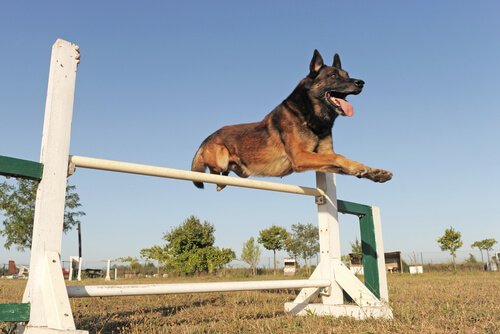
The Belgian Shepherd measures around 60 cm in height and weigh around 88 pounds (males). They have sturdy, muscular bodies, with short brown hair, and large pointy ears which are black like their faces.
5. Labrador Retriever
Maybe it’s one of the most common dogs to have as a pet because of their obedience and physical stamina. However, for those same reasons, you’ll often see them in Canicross.
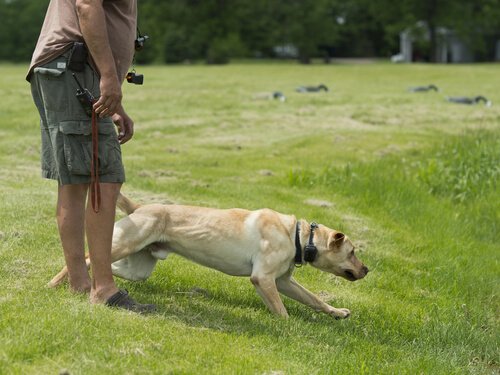
This breed was originally used for hunting or tracking prey. Their musculature is quite well-developed and they’re pretty quick. Perfect for doing exercise together!
Are there any breeds which can’t take part in Canicross? Sadly, there are due to certain physical traits. Some of these include dogs with Brachycephalic Syndrome, like the French Bulldog, Pug, or Boston Terrier.
This text is provided for informational purposes only and does not replace consultation with a professional. If in doubt, consult your specialist.